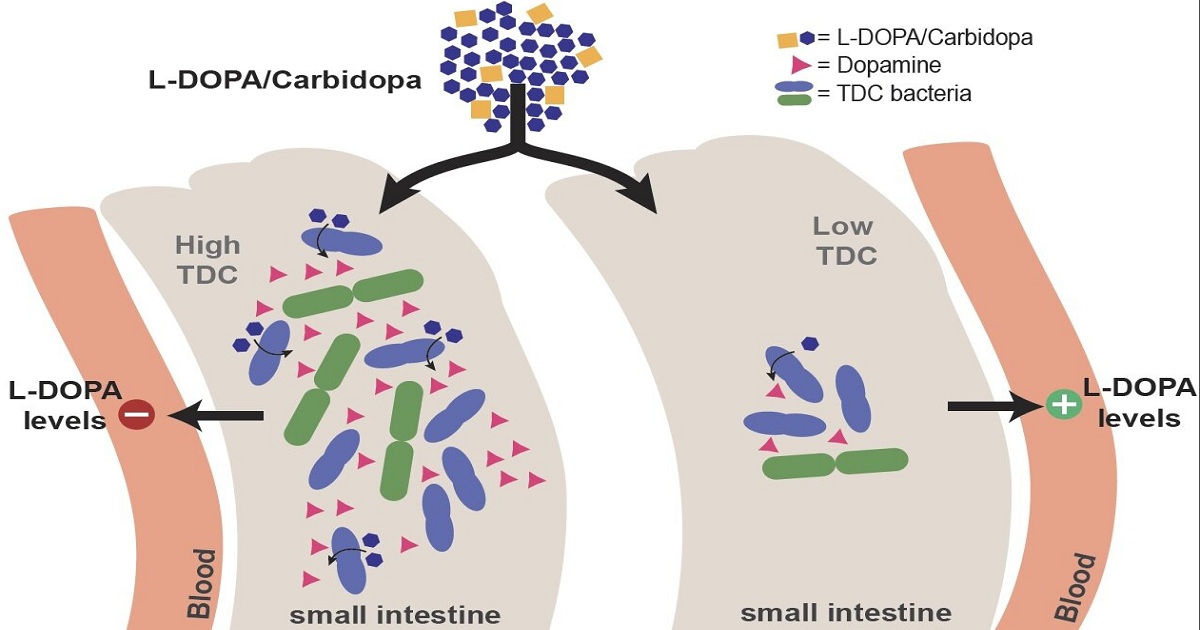How gut bacteria affect the treatment of Parkinson's disease
Medical Xpress | January 21, 2019

Patients with Parkinson's disease are treated with levodopa, which is converted into dopamine, a neurotransmitter in the brain. In a study published on 18 January in the journal Nature Communications, scientists from the University of Groningen show that gut bacteria can metabolize levodopa into dopamine. And since dopamine cannot cross the blood-brain barrier, this makes the medication less effective—even in the presence of inhibitors that should prevent the conversion of levodopa. "It is well established that gut bacteria can affect the brain," explains Assistant Professor of Microbiology Sahar El Aidy, lead investigator of the study. "There is a continuous chemical dialogue between gut bacteria and the brain, the so-called gut-brain axis." El Aidy and her team investigated the ability of gut microbiota to influence the bioavailability of levodopa, a drug used in the treatment of Parkinson's disease.
The drug is usually taken orally, and levodopa is absorbed in the small intestine and then transported through the bloodstream to the brain. However, decarboxylase enzymes can convert levodopa into dopamine. In contrast to levodopa, dopamine cannot cross the blood-brain barrier, so patients are also given a decarboxylase inhibitor. "But the levels of levodopa that will reach the brain very strongly among Parkinson's disease patients, and we questioned whether gut microbiota was playing a role in this difference," says El Aidy.